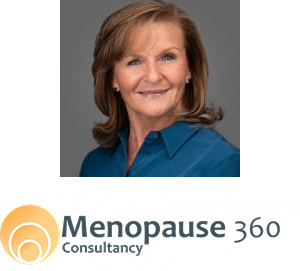
Guest blog written by June Potts, founder of Menopause 360 Consultancy
Menopause is often negatively portrayed by the media, therefore stigma, a sense of shame and embarrassment persists, making it difficult to talk about. For many the word ‘menopause’ is uncomfortable. Consequently, there is a reluctance by many women to divulge their menopause status to their line manager. Whilst understandable, menopause need not be an awkward topic of conversation.
Research suggests talking about menopause helps to ease symptoms – talking, is the starting point in the process. Sharing experiences with other women going through the same thing can be reassuring. Reframing the menopause so it’s talked about openly and positively, should be the aim of any menopause initiative, recognising menopause affects everyone, not just women. Men need to be educated too, so they can play a supportive role in the workplace, and at home.
Menopause has prompted debate amongst Members of Parliament (MPs), calling for the introduction of formal policies to protect menopausal women from being discriminated in the workplace. Although legislation doesn’t currently exist, the next Labour Government have promised to enforce a compulsory menopause policy for larger organisations. It is the view of the Chartered Institute of Personnel and Development (CIPD) that menopause in the workplace has been overlooked for far too long, highlighting the importance for employers to act.
Termed the last workplace taboo, menopause has long been recognised as an urgent workplace issue that all employers should take seriously. Half the workplace is female, which means half the workforce will go through menopause at some stage. Building awareness and openness around the menopause and providing support could transform the working lives of millions of women.
A survey by the British Menopause Society (BMS) found that 35% of women felt their menopause symptoms have negatively impacted their work. In contrast, the CIPD, reports more elevated figures, claiming, work negatively impacts 59% of menopausal women. In economic terms this translates to the cost of absenteeism, reduced productivity, presenteeism, women not going for promotions, reducing hours, and in some cases, women leaving their jobs
The CIPD believe employers should support women with menopausal symptoms in the same way they would support other health conditions. Information and education are key and should be included as part of an organisation’s diversity and inclusion training for the whole workforce, with health and wellbeing policies signposting to available resources. The benefits of embedding action could mean employers enhance their ability to tap into and retain a valuable pool of female talent.
Research by the TUC concludes employers have a responsibility to ensure the health and safety of menopausal women in the workplace and have a duty not to discriminate under the Equality Act 2010. Highlighting there have already been successful employment tribunals against employers. Summing up, the report emphasises a lack of training provision, highlighting an urgent need for suitable training to be developed to meet the needs of the workforce.
Creating an inclusive workplace is key to attracting and maintaining the best talent, which supports the business case. This makes menopause education and awareness a necessity, especially in organisations keen to support employee well-being by getting the menopause conversation started.
Health@Work is now offering Menopause Training . Our menopause training can deliver a wealth of benefit to your employees. Not only do we offer webinars and interactive training, but our strategy and policy services helps organisations embed change to create a menopause friendly and inclusive workplace. If you’d like to find out more about our training and how your employees can benefit, email us on info@healthatworkcentre.org.uk
Information and Guidance on Menopause for Employers
- ACAS Menopause Guidance
- CIPD Menopause Guidance
- Faculty of Occupational Medicine Menopause Guidance
- Example of a menopause toolkit for colleagues and managers from the Civil Service
- Government review on how menopause transition impacts on women’s economic participation
- TUC Menopause at Work – Guidance
- British Menopause Society – research results

About June:
June Potts, Founder and Director, Menopause 360 Consultancy, supporting and educating organisations to raise menopause awareness at work to create a menopause friendly and inclusive workplace.
For MBA accreditation, June is currently researching cultural barriers for change, focusing on menopause, the last workplace taboo. Her thesis ‘Menopause in the Workplace: flushing out the taboo’ is available from February 2021.
June is a member of the British Menopause Society.




